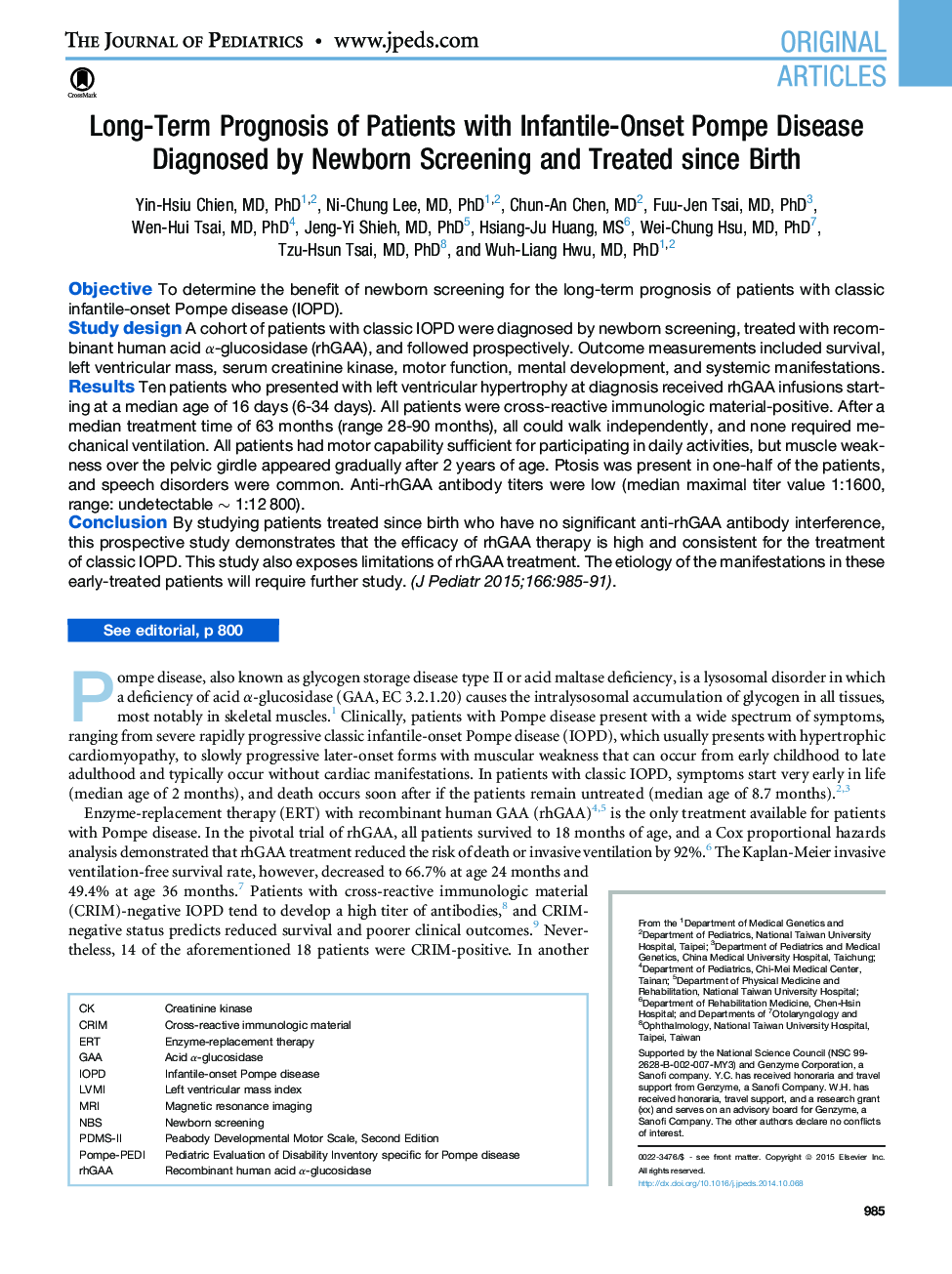| Article ID | Journal | Published Year | Pages | File Type |
|---|---|---|---|---|
| 6221533 | The Journal of Pediatrics | 2015 | 9 Pages |
ObjectiveTo determine the benefit of newborn screening for the long-term prognosis of patients with classic infantile-onset Pompe disease (IOPD).Study designA cohort of patients with classic IOPD were diagnosed by newborn screening, treated with recombinant human acid α-glucosidase (rhGAA), and followed prospectively. Outcome measurements included survival, left ventricular mass, serum creatinine kinase, motor function, mental development, and systemic manifestations.ResultsTen patients who presented with left ventricular hypertrophy at diagnosis received rhGAA infusions starting at a median age of 16 days (6-34 days). All patients were cross-reactive immunologic material-positive. After a median treatment time of 63 months (range 28-90 months), all could walk independently, and none required mechanical ventilation. All patients had motor capability sufficient for participating in daily activities, but muscle weakness over the pelvic girdle appeared gradually after 2 years of age. Ptosis was present in one-half of the patients, and speech disorders were common. Anti-rhGAA antibody titers were low (median maximal titer value 1:1600, range: undetectable â¼Â 1:12â800).ConclusionBy studying patients treated since birth who have no significant anti-rhGAA antibody interference, this prospective study demonstrates that the efficacy of rhGAA therapy is high and consistent for the treatment of classic IOPD. This study also exposes limitations of rhGAA treatment. The etiology of the manifestations in these early-treated patients will require further study.
